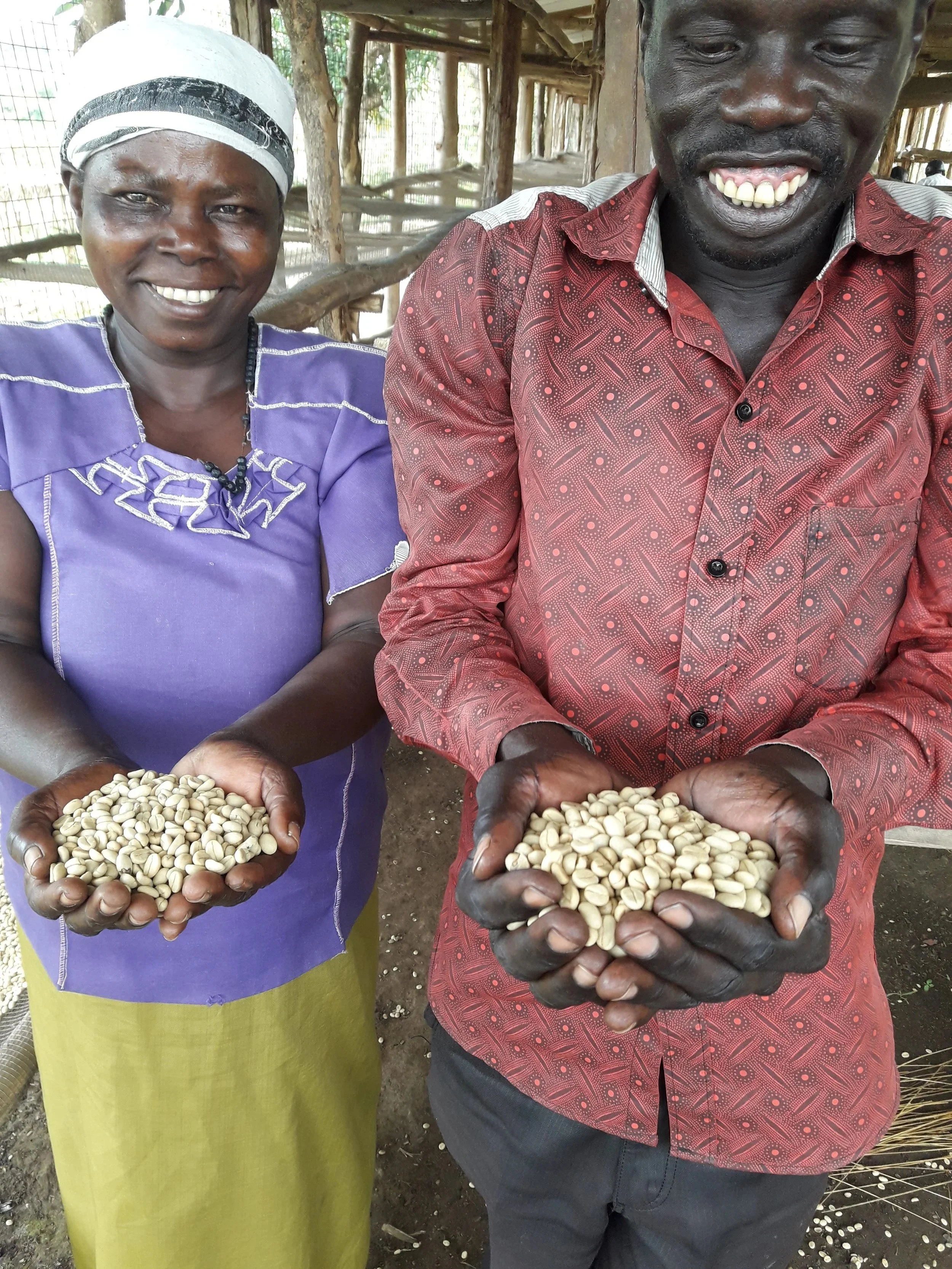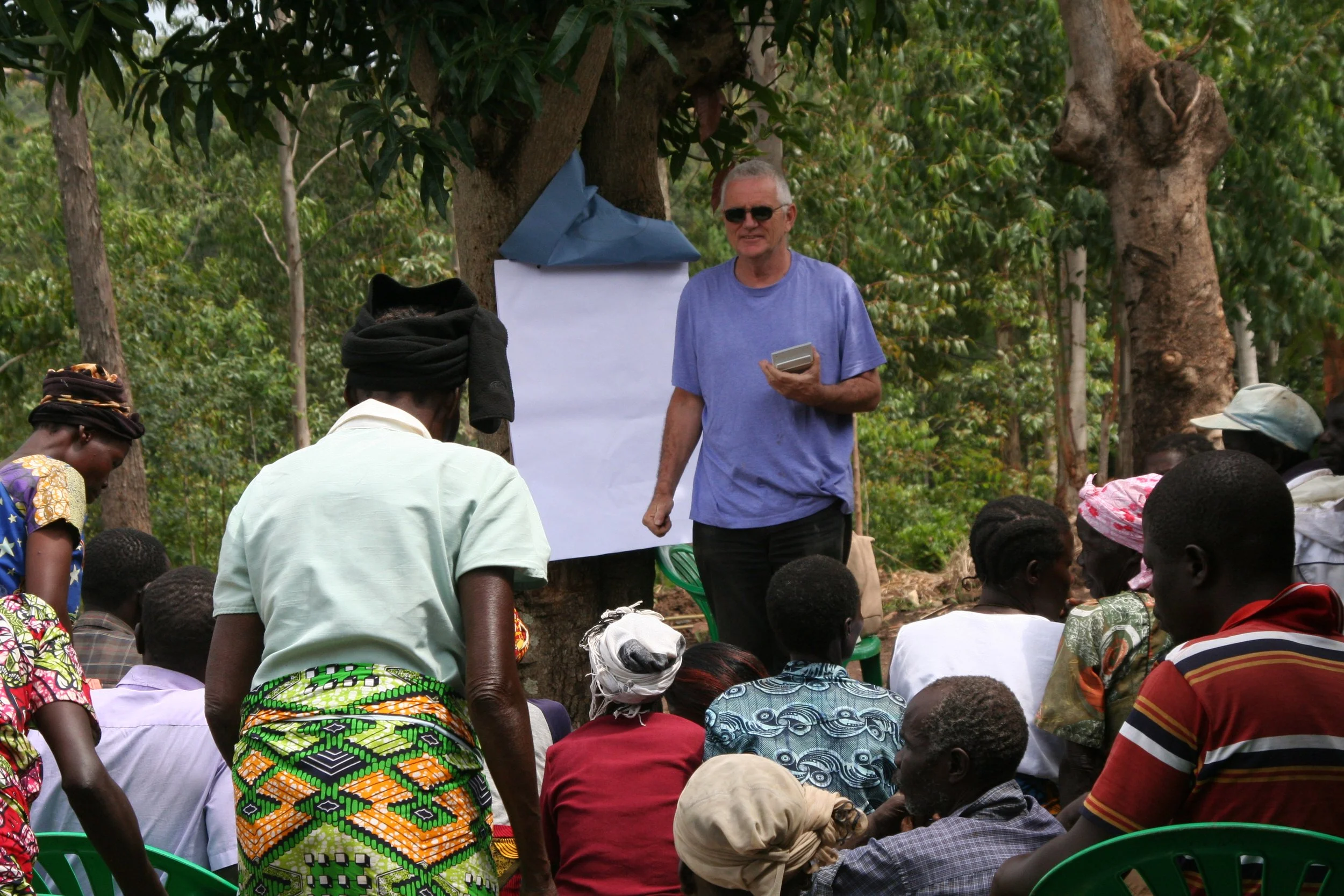The micro‑station was established in 2015 by a diverse group of 300 youth, women, and men who came together with a shared mission: to achieve better prices and produce higher-quality coffee in larger volumes through collective effort, bringing the market closer to smallholders. United by the goal of promoting gender equality, they pooled their resources to learn good agronomic practices and build a supportive, cooperative community. Their aspirations include expanding membership to 1,000 farmers, acquiring transport, constructing new storage, fencing the facility, installing power for safety during coffee season, and one day offering member loans. Yet, they continue to face significant challenges: unpredictable weather affecting drying; distant members struggling to access the station; limited processing and storage space; insecurity due to lack of fencing and electricity; and water scarcity hindering processing tasks such as floating. Despite these hurdles, their motivation remains strong—fair prices and bonuses from Zombo Coffee Partners, practical knowledge gained at the station, strong social bonds, and the tangible improvements in their livelihoods keep them united. They grow coffee not only for its cultural and health value but also for financial security, household consumption, and as a climate-smart crop, given the shade trees that help adapt to environmental changes.
CULTIVARS
Most of the coffee grown in the Alur Highlands of north-west Uganda is SL14, a variety developed by Scott Laboratories in Kenya and promoted by the Uganda Coffee Development Authority. There is also some Bourbon, which comes from nearby DR Congo, where it dominates.
elevation
1506 meters
NOTABLE
PROCESSING
-
When coffee is ready, farmers hand-pick only fully ripe cherries. These are placed on a quality table where overripe, diseased, or otherwise bad cherries are removed, and then the remaining cherries are weighed. Next, floating is used to separate quality cherries from floaters. After floating, the quality cherries are spread on drying tables and turned daily. Under normal conditions this takes about five days; during the rainy season, drying into naturals can take up to two weeks. Finally, once the cherries reach a moisture content of 13%, they are bagged and stored, ready for transport to Jukia.
-
The price you pay for Culamuk natural p/kg. We agreed on this price directly with the farmers, disregarding the volatile US Coffee C price.
-
The microstation buys red cherries from the farmers. They process it and then send the dry coffee (in parchment form) to Zombo for final milling, sorting for it to be made to export grade. Farm gate in this case includes price paid to the farmer and the primary processing done by the microstation.
-
The microstation buys red cherries from the farmers. They process it and then send the dry coffee (in parchment form) to Zombo for final milling, sorting for it to be made to export grade. Farm gate in this case includes price paid to the farmer and the primary processing done by the microstation.
-
International shipping from Nebbi (Port of loading - Mombasa, Kenya) to Rotterdam, Netherlands. It is inclusive of freight, customs, insurance and warehousing costs.
-
Average financing cost owed to (mostly social) lenders. This ensures immediate payment to the farmers when the coffee leaves the farm or port.
-
A standard TSU premium on all coffees designated exclusively to accelerate farmers’ own regenerative agriculture project.
-
This Side Up compensation for spending time and resources importing this coffee. Our work includes year-round contact with producers, managing export, shipping, import, warehousing, grading, sampling, finding and keeping roasting partners for Zombo. € 1,22 is This Side Up’s Model 1 markup. For a full overview of our modular margin construction, see the Trade Models page
Photo gallery
You may use these images freely to promote Culamuk coffee amongst your customers.






